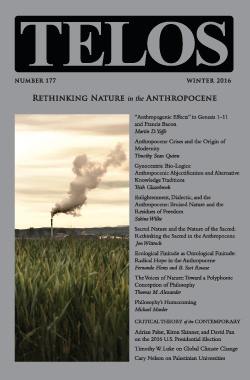Telos 211 (Summer 2025): Dispatches from the Culture Wars is now available for purchase in our store. Individual subscriptions to Telos are also available in both print and online formats.
 As we survey the landscape of war today, it has become truer than ever that hot wars are a consequence of culture wars. Trump’s support for Israel against Iran contrasts with the discourse on college campuses that opposes Israel as a white supremacist, settler-colonial state. In opposing the most egalitarian liberal democracy in the Middle East, this left-wing perspective poses a major threat to the liberal values that the United States has always stood for. But the anti-Israel protests at colleges represent only the tip of the iceberg of a more widespread form of hierarchical rule that has established itself globally through a “new class” of managers. Looked at in this way, the culture war at U.S. universities will have far-reaching consequences for the future of the world. At stake are not merely research funding and tax breaks, but a social structure that privileges expert opinion over popular rule in all areas of our society. Colleges and universities are the key to this system, as the social sciences train the professionals that go on to manage the lives of the uncredentialed, while the humanities develop the perspectives that justify this form of managerial rule. In this issue of Telos, we consider how today’s culture wars over universities will shape the global future.
As we survey the landscape of war today, it has become truer than ever that hot wars are a consequence of culture wars. Trump’s support for Israel against Iran contrasts with the discourse on college campuses that opposes Israel as a white supremacist, settler-colonial state. In opposing the most egalitarian liberal democracy in the Middle East, this left-wing perspective poses a major threat to the liberal values that the United States has always stood for. But the anti-Israel protests at colleges represent only the tip of the iceberg of a more widespread form of hierarchical rule that has established itself globally through a “new class” of managers. Looked at in this way, the culture war at U.S. universities will have far-reaching consequences for the future of the world. At stake are not merely research funding and tax breaks, but a social structure that privileges expert opinion over popular rule in all areas of our society. Colleges and universities are the key to this system, as the social sciences train the professionals that go on to manage the lives of the uncredentialed, while the humanities develop the perspectives that justify this form of managerial rule. In this issue of Telos, we consider how today’s culture wars over universities will shape the global future.



